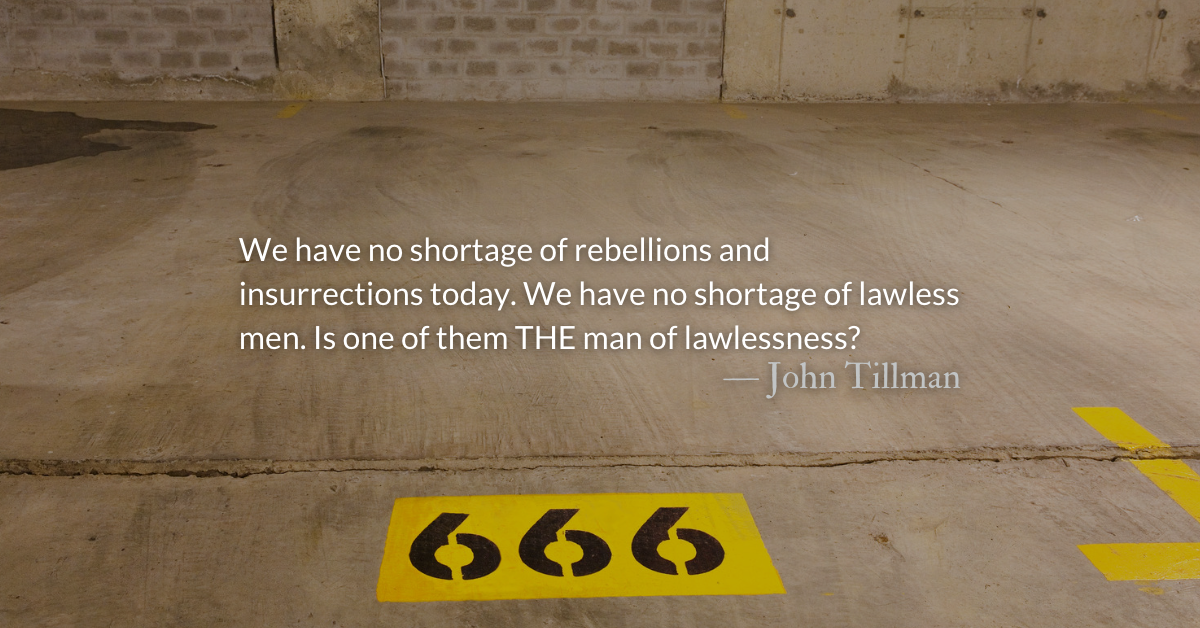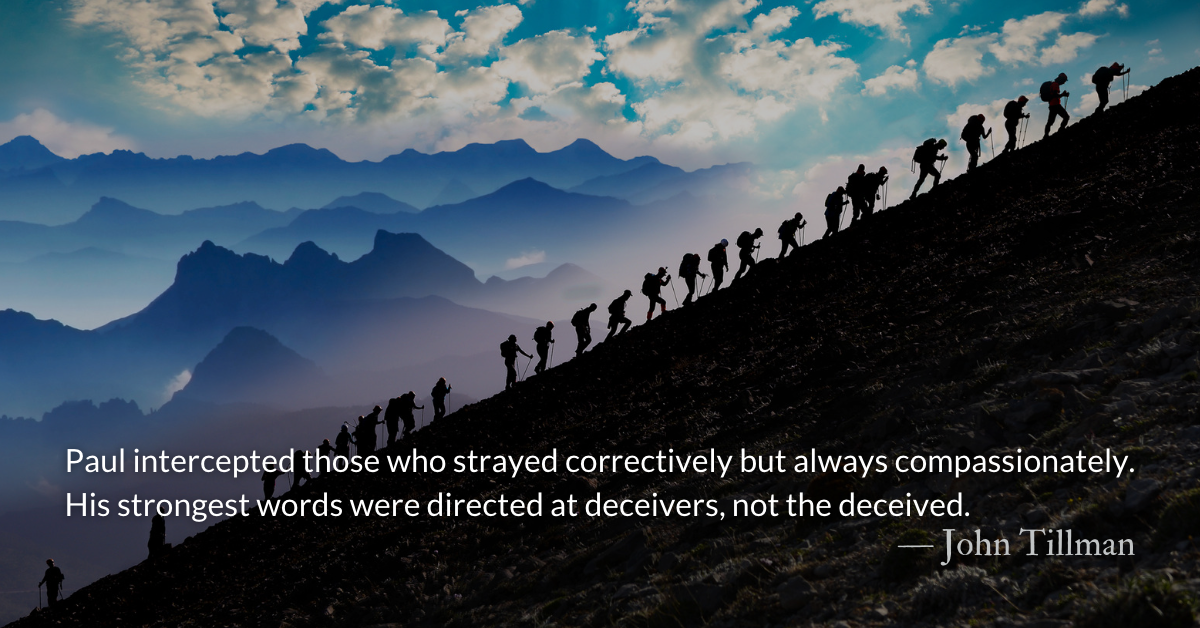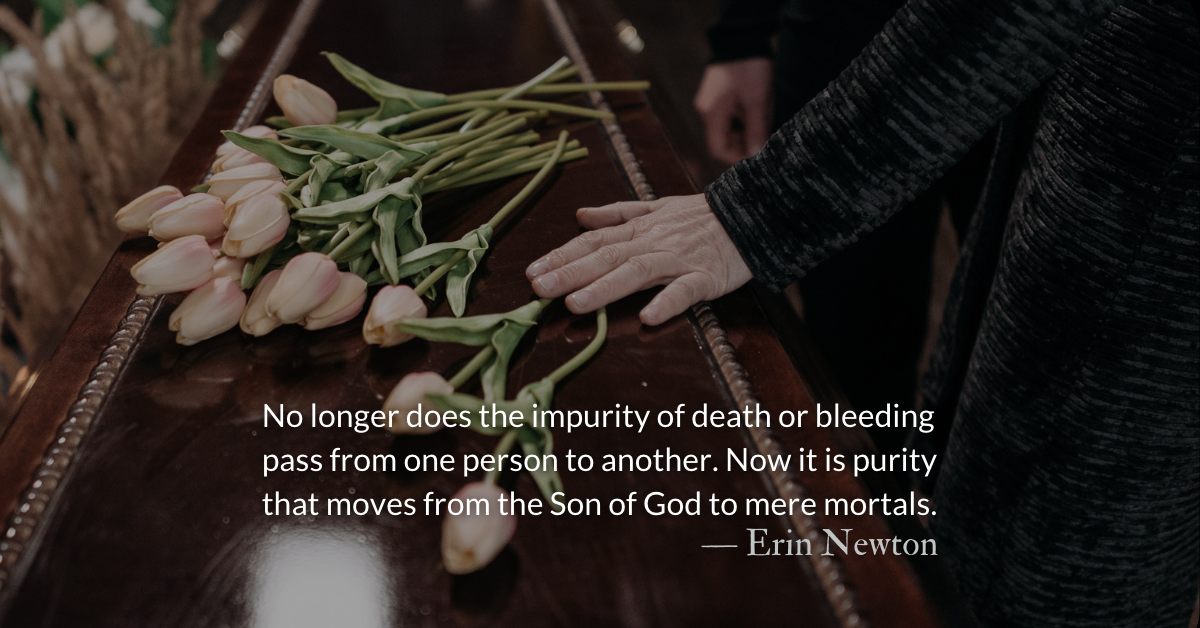Scripture Focus: 2 Thessalonians 2.3-4; 9-10
3 Don’t let anyone deceive you in any way, for that day will not come until the rebellion occurs and the man of lawlessness is revealed, the man doomed to destruction. 4 He will oppose and will exalt himself over everything that is called God or is worshiped, so that he sets himself up in God’s temple, proclaiming himself to be God.
9 The coming of the lawless one will be in accordance with how Satan works. He will use all sorts of displays of power through signs and wonders that serve the lie, 10 and all the ways that wickedness deceives those who are perishing. They perish because they refused to love the truth and so be saved.
Reflection: Wary but not Paranoid
By John Tillman
In Peter Jackson’s Lord of the Rings trilogy, Sauron’s physical form is twisted and horrific, matching the darkness of his motives and methods.
As fans discussed early episodes of the Rings of Power series, they speculated about which character was Sauron. When this was finally revealed, fans of Tolkien’s work were not surprised that the character is very attractive.
Sauron was one of a group of immortal beings called the “Ainur.” He came in the disguise of a “fair man,” tricking the elves into helping him make the rings of power.
Tolkien reflected on two things as he molded the mythology of his Lord of the Rings universe: The Bible and World War II. It is no accident that there are similarities in Sauron’s path to power and downfall that mirror Satan and the Axis powers.
Paul reassured the Thessalonians about “End Times” anxieties. Some unidentified leaders had given some false information. Paul corrects them saying that before the end, “the rebellion” must occur and the “man of lawlessness” must be revealed. We have no shortage of rebellions and insurrections today. We have no shortage of lawless men. Is one of them THE man of lawlessness?
Jesus warned the disciples not to believe those claiming he had appeared, saying, “He’s over there! He’s in here!” (Luke 17.23; Matthew 24.26) We should have similar doubts about those claiming this leader or that one is the Antichrist.
Most of those pointing fingers at Antichrists are pointing at people they already hate or dislike. More than anything else, this indicates they are probably wrong. An unbelieving friend of mine says that the Antichrist is probably Ryan Seacrest, or someone equally as attractive and appealing. He’s probably right—not about the individual, but about the method.
The Antichrist will come, according to Paul, “in accordance with how Satan works.” (v. 9) If this is true, the outer package will be appealing. So what should we do? Only trust non-attractive people? Follow people we dislike? What do we do to prevent being deceived? Paul says, “love the truth and be saved.” (v. 10)
Like Sauron, even after the success of Satan’s deceptions, dark lords and men of lawlessness will fall before Jesus. We should be wary but not paranoid. Cautious but not in crisis. If we hold fast to Christ and love the truth more than human leaders no “man of lawlessness” will fool us for long.
Divine Hours Prayer: The Request for Presence
You are my helper and my deliverer; do not tarry, O my God. — Psalm 40.19
– From The Divine Hours: Prayers for Springtime by Phyllis Tickle.
Today’s Readings
Numbers 25 (Listen 2:20)
2 Thessalonians 2 (Listen 2:32)
Read more about Things Even Angels Question
End times prophecies are one of those areas in which well meaning believers can start missing the forest for the trees.
Read more about Supporting Our Work
Our ad-free content brings biblical devotionals to inboxes across the world. Support us by becoming a one-time or recurring donor today.











